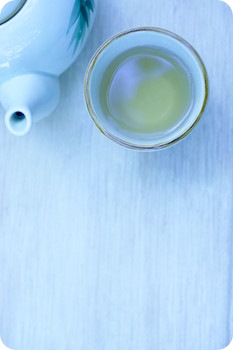May 26 2009
Mayo Clinic researchers are reporting positive results in early leukemia clinical trials using the chemical epigallocatechin gallate (EGCG), an active ingredient in green tea.
The trial determined that patients with chronic lymphocytic leukemia (CLL) can tolerate the chemical fairly well when high doses are administered in capsule form and that lymphocyte count was reduced in one-third of participants. The findings appear today online in the Journal of Clinical Oncology.
"We found not only that patients tolerated the green tea extract at very high doses, but that many of them saw regression to some degree of their chronic lymphocytic leukemia," says Tait Shanafelt, M.D., Mayo Clinic hematologist and lead author of the study. "The majority of individuals who entered the study with enlarged lymph nodes saw a 50 percent or greater decline in their lymph node size."
CLL is the most common subtype of leukemia in the United States. Currently it has no cure. Blood tests have enabled early diagnosis in many instances; however, treatment consists of watchful waiting until the disease progresses. Statistics show that about half of patients with early stage diseases have an aggressive form of CLL that leads to early death. Researchers hope that EGCG can stabilize CLL for early stage patients or perhaps improve the effectiveness of treatment when combined with other therapies.
The research has moved to the second phase of clinical testing in a follow-up trial -- already fully enrolled -- involving roughly the same number of patients. All will receive the highest dose administered from the previous trial.
These clinical studies are the latest steps in a multiyear bench-to-bedside project that began with tests of the green tea extract on cancer cells in the laboratory of Mayo hematologist Neil Kay, M.D., a co-author on this article. After laboratory research showed dramatic effectiveness in killing leukemia cells, the findings were applied to studies on animal tissues and then on human cells in the lab. (See "Green Tea and Leukemia" in Discovery's Edge magazine.)
In the first clinical trial, 33 patients received variations of eight different oral doses of Polyphenon E, a proprietary compound whose primary active ingredient is EGCG. Doses ranged from 400 milligrams (mg) to 2,000 mg administered twice a day. Researchers determined that they had not reached a maximum tolerated dose, even at 2,000 mg twice per day.